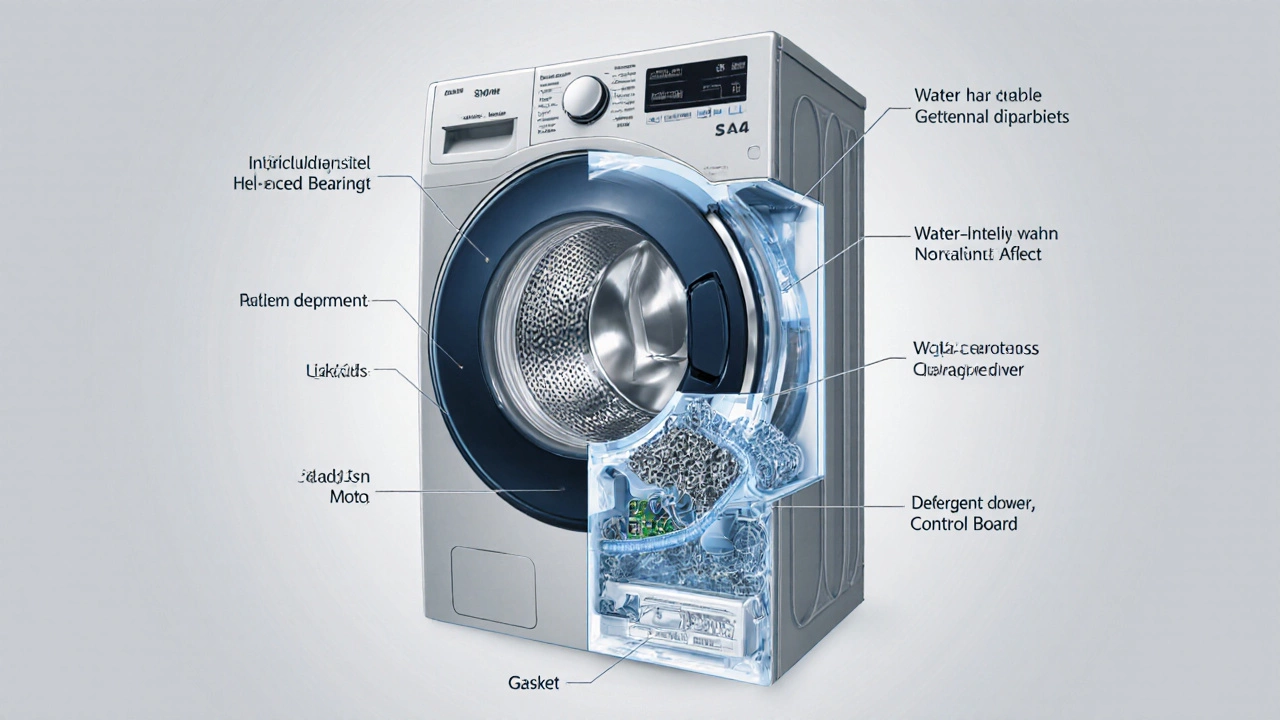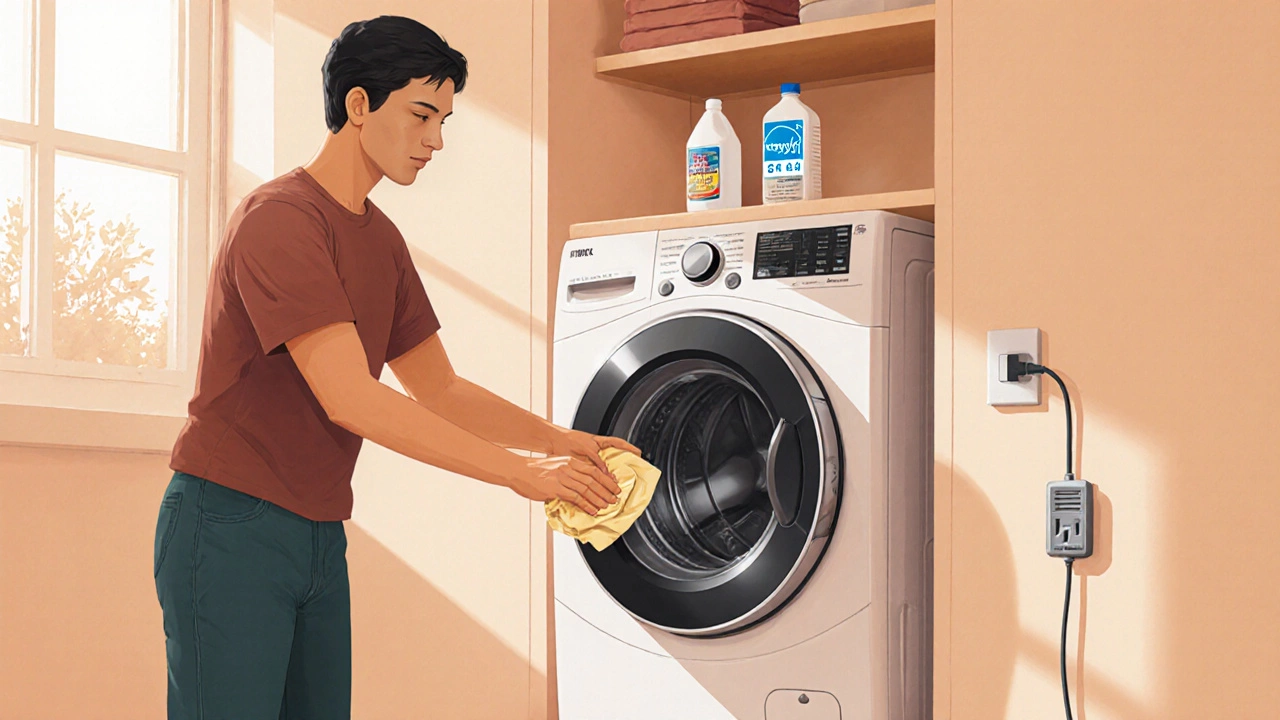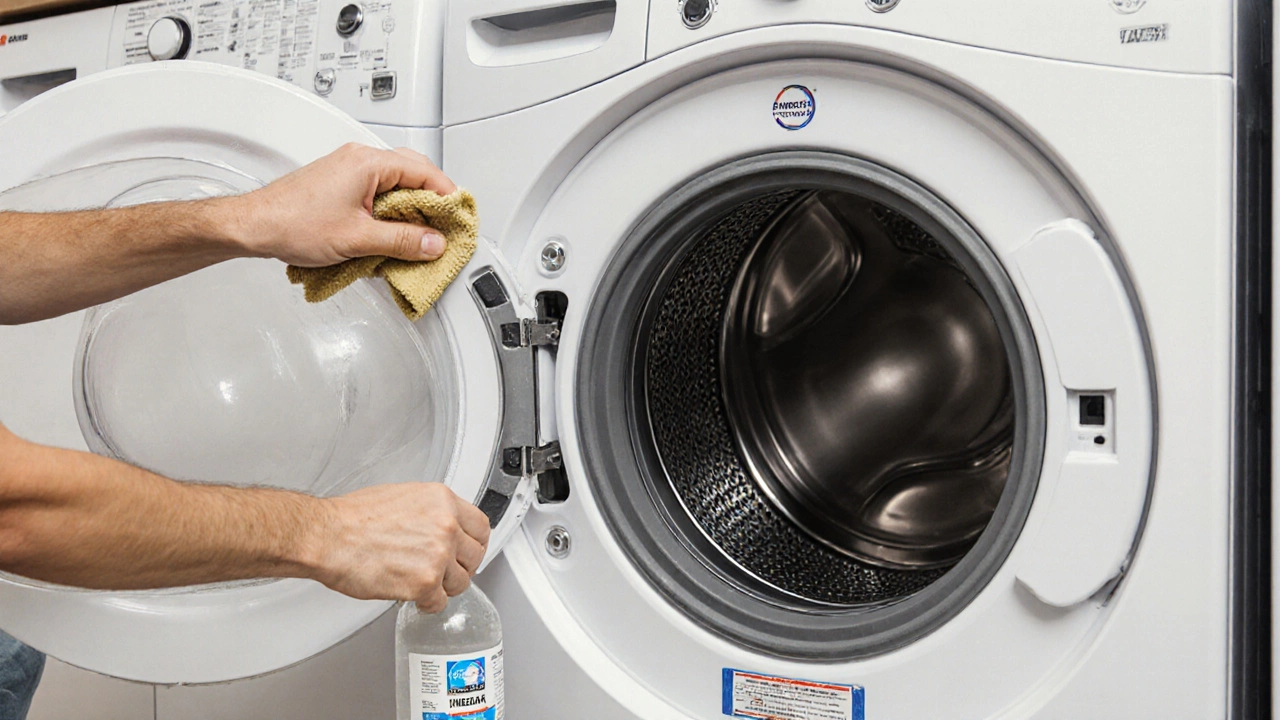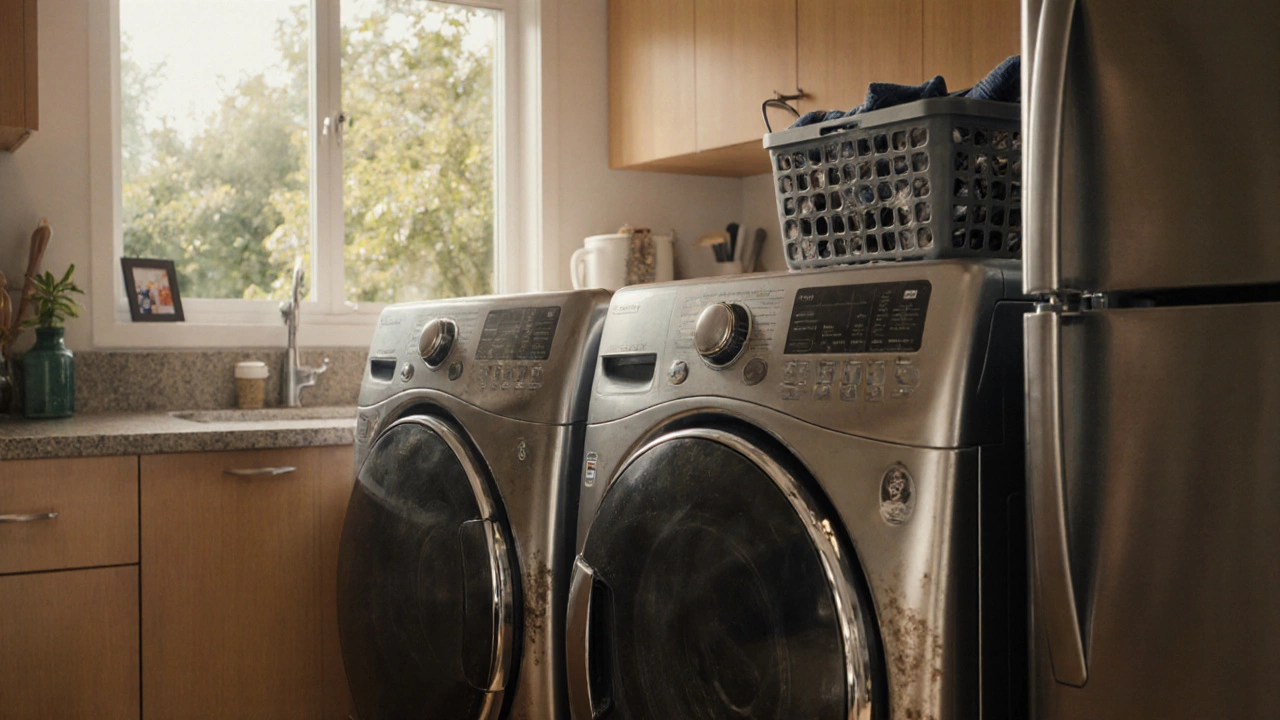Ever wonder why one neighbour’s washer is chugging along for 15 years while yours quits after just a few short cycles? The answer isn’t magic - it’s a mix of design, usage habits, and how you treat the machine.
Washing machine is a household appliance that cleans clothes by rotating a drum filled with water, detergent, and laundry. Modern units come in front‑load designs that use less water and spin faster or top‑load models that are often cheaper and easier to service. Understanding how these components work helps you estimate how many years you can expect from your machine.
What Determines a Washing Machine’s Lifespan?
- Build quality - Premium brands invest in stainless‑steel drums and sealed bearings, while budget models may use plastic tubs that wear out faster.
- Type of load - Heavy, bulky items (blankets, towels) strain the spin motor the component that drives the drum’s rotation more than light synthetics.
- Usage frequency - Machines used 5‑6 times a week age quicker than those run a few times a month.
- Water hardness - Hard water leaves mineral deposits on the water inlet valve the part that controls water entry, leading to corrosion.
- Maintenance habits - Regular cleaning of the lint filter, gasket, and detergent drawer can add years.
- Electrical stability - Power surges damage the control board the electronic brain that manages cycles and shorten life.
Typical Lifespan Benchmarks
| Machine Type | Low Usage (≤3 loads/week) | Medium Usage (4‑5 loads/week) | High Usage (≥6 loads/week) |
|---|---|---|---|
| Front‑load (mid‑range) | 12‑14 years | 10‑12 years | 8‑10 years |
| Front‑load (high‑end) | 15‑20 years | 13‑16 years | 11‑14 years |
| Top‑load (standard) | 8‑10 years | 6‑8 years | 4‑6 years |
These numbers come from industry surveys (e.g., Consumer Reports 2024) and real‑world service data. They’re averages, not guarantees - your actual experience will hinge on the factors listed above.

How to Extend the Life of Your Washer
- Clean the gasket and drum every 3‑4 months. Wipe away soap scum, mildew, and foreign objects that can cause leaks.
- Descale the water inlet valve if you live in a hard‑water area. A vinegar‑water soak once a year removes mineral buildup.
- Balance the load - Overloading stresses the spin motor and bearings. Follow the manufacturer’s capacity chart.
- Use the right detergent - High‑efficiency (HE) detergents produce fewer suds, reducing wear on seals.
- Run a cleaning cycle monthly with a commercial washing‑machine cleaner to clear residue from the control board and internal hoses.
- Check the level - An unlevel machine vibrates excessively, wearing out suspension components faster.
- Protect against power spikes - Install a surge protector or UPS for the outlet.

When Repairs Are Worth It vs. Replacing
Repair costs can vary dramatically. A faulty control board often runs $180‑$300 for parts plus labor. A worn spin motor might be $150‑$250. Compare these figures against the current market price of a comparable new unit (usually $600‑$1,200 for mid‑range front‑loaders).
- If your machine is under 8 years old and the repair is under $200, fixing is usually the smarter choice.
- For units older than 12 years, even a cheap repair may not pay off because other components are likely to fail soon.
- Consider your appliance warranty. Some extended warranties cover major parts for up to 10 years, making repair virtually free.

Energy Efficiency and Cost Savings Over Time
Modern energy efficiency rating indicates how much electricity and water a washer uses per cycle can lower utility bills by 20‑30% compared to older models. If your current machine is more than a decade old, replacing it with an ENERGY STAR‑certified unit may recoup the purchase price in 3‑5 years through savings.
Quick Takeaways
- Average lifespan: 8‑12 years for most washers; high‑end front‑loaders can reach 15‑20 years.
- Key longevity drivers: build quality, usage frequency, maintenance, water hardness, and power stability.
- Simple habits - clean the gasket, descale valves, level the machine - add 3‑5 years.
- Repair vs. replace rule of thumb: if repair < $200 and unit < 8 years old, fix it; otherwise start shopping for a new, efficient model.
What is the typical warranty period for a new washing machine?
Most manufacturers offer a 1‑year limited warranty covering parts and labor, with an optional 2‑year extended plan that adds coverage for the motor and drum.
How often should I clean the washing machine drum?
A quick wipe‑down after every use keeps residue down, but a deep cleaning with a commercial cleaner every 30‑45 days prevents mold and odor buildup.
Can I use regular detergent in a high‑efficiency washer?
No. Regular detergent creates excess suds that can overflow, strain the pump, and leave residue on the drum. Always use HE‑labeled detergent for front‑load or HE top‑load models.
When should I replace the water inlet valve?
If you notice leaks, error codes like "E1" (in most brands), or water filling too slowly, it’s time to replace the valve. A typical lifespan is 5‑8 years, shorter in hard‑water regions.
Is it worth upgrading to a front‑load washer?
Front‑loaders use up to 40% less water and spin faster, cutting drying time. They often last longer, but they’re pricier and need more careful loading to avoid drum damage.



